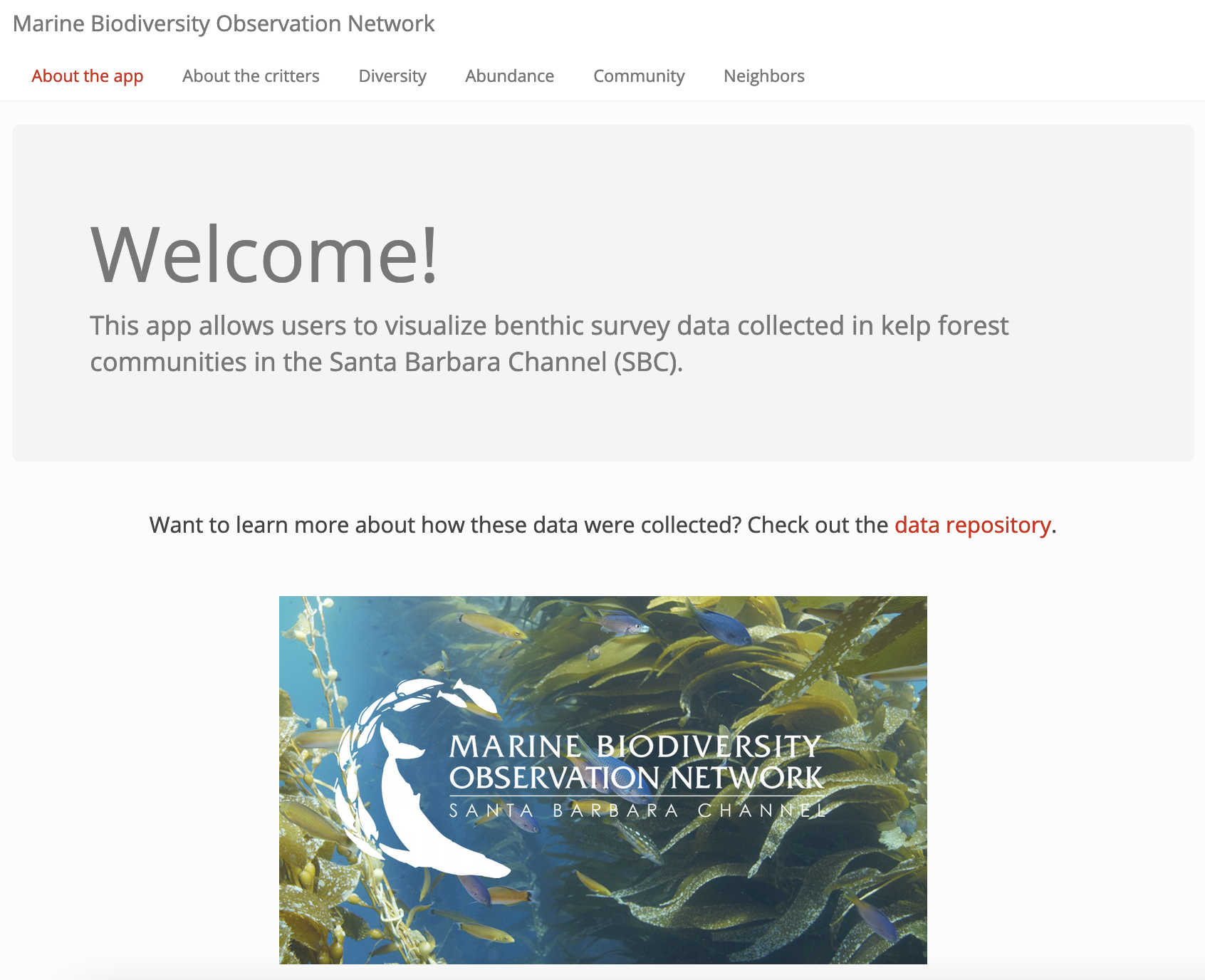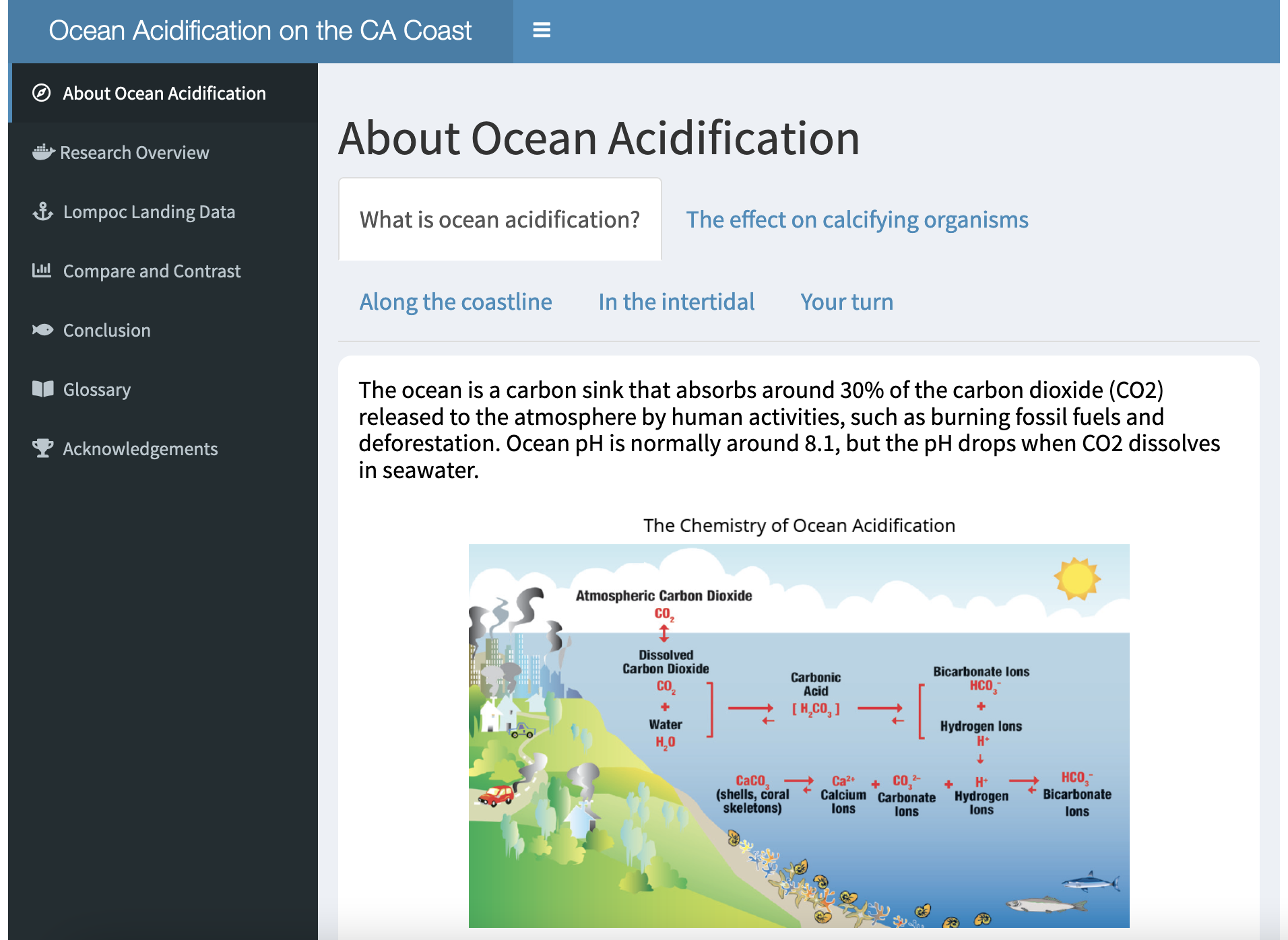Projects
I am collaborating with Dr. David Burnett at Portland State University to develop a low-cost, Durafet-based intertidal pH sensor. I presented the first version of our design at OCEANS 2023 Limerick for the Student Poster Competition (and won first place!). The second iteration of our design included wireless capabilities and was more power optimized, and I presented at OCEANS 2024 Singapore. The publications for this project can be found in Publications, and the Github repository for this project can be found here.
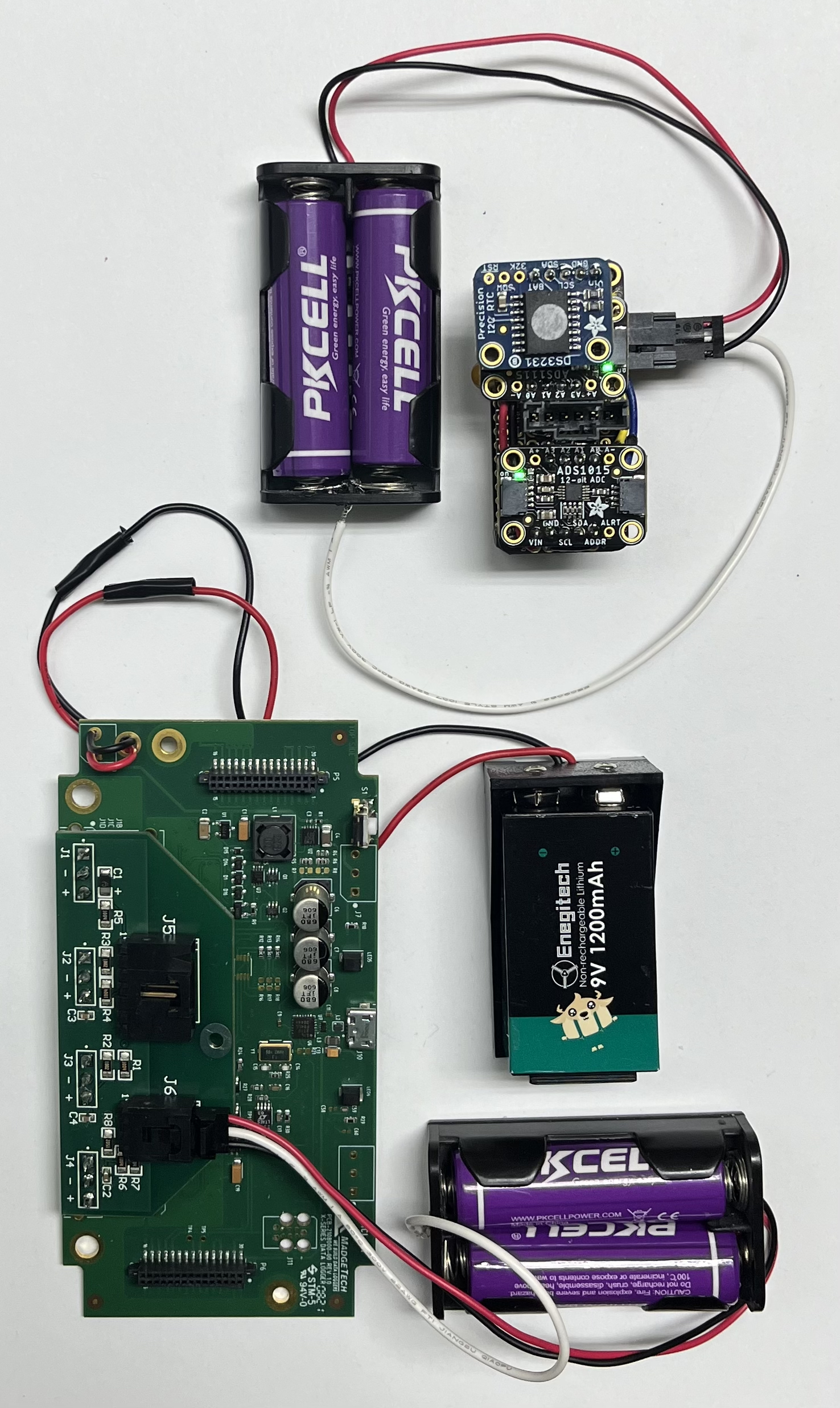
New design data logger (left, black/blue) alongside old design data logger (right, green).
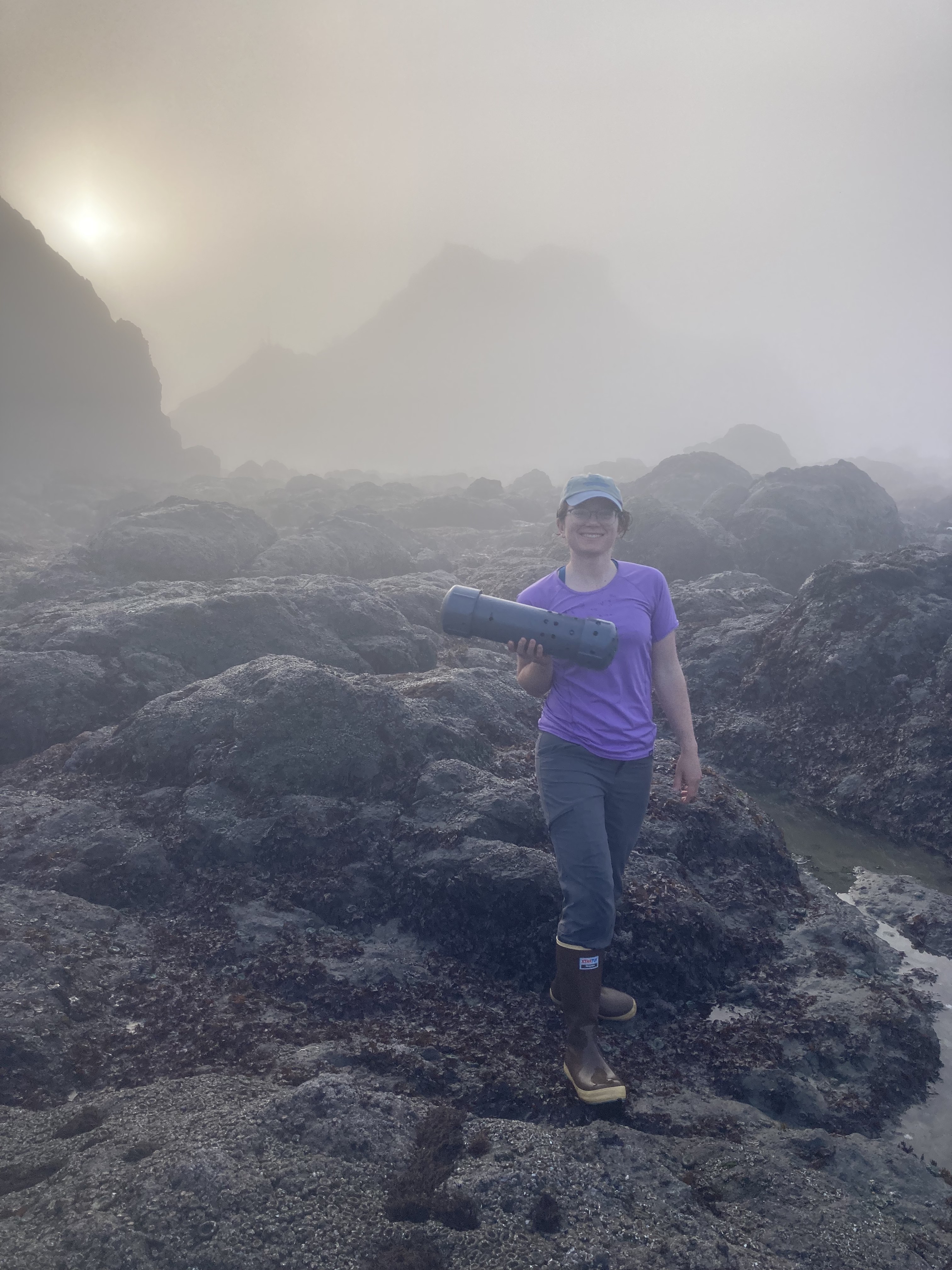
Ready to deploy a pH sensor at Point Grenville, WA.
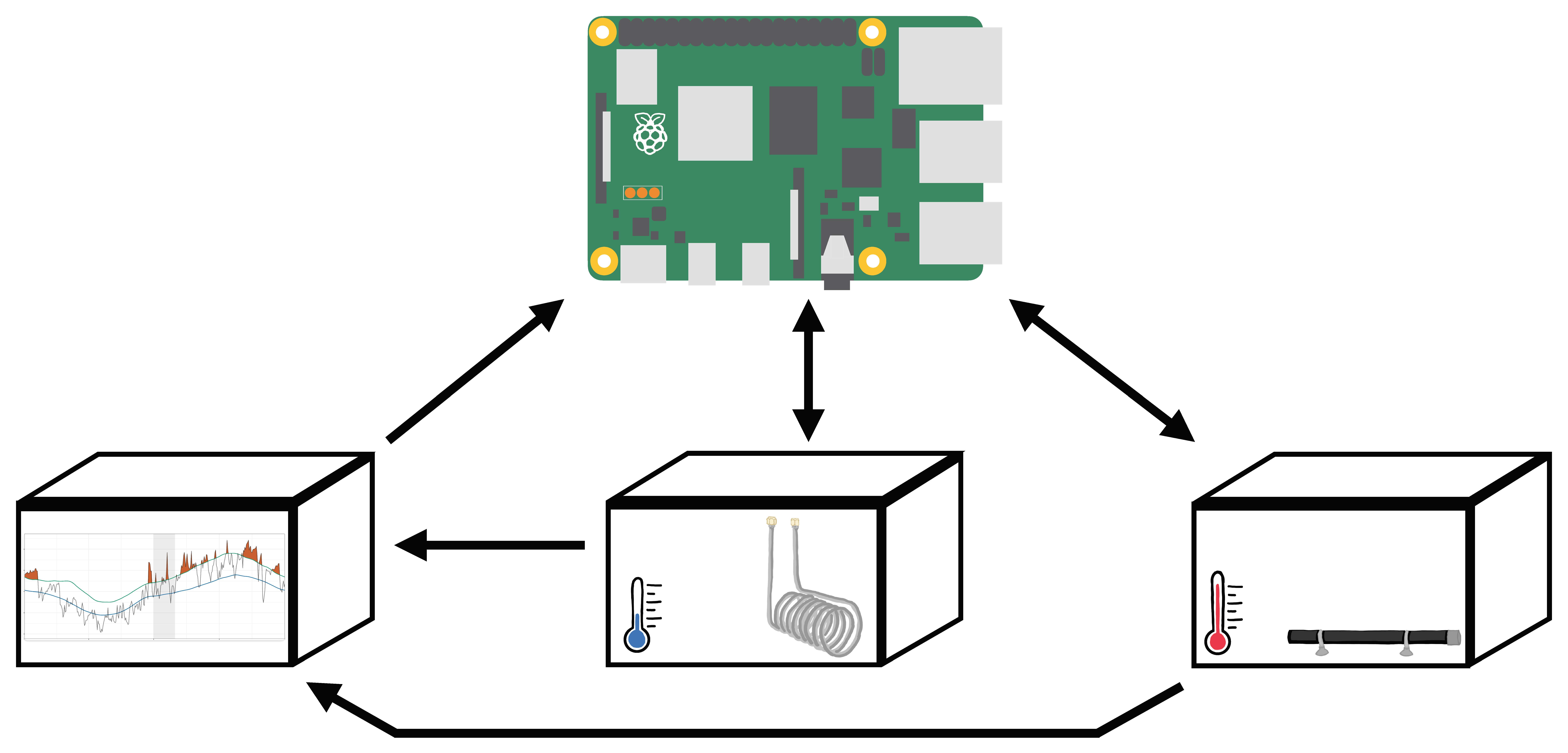
Marine heatwave simulator system schematic.
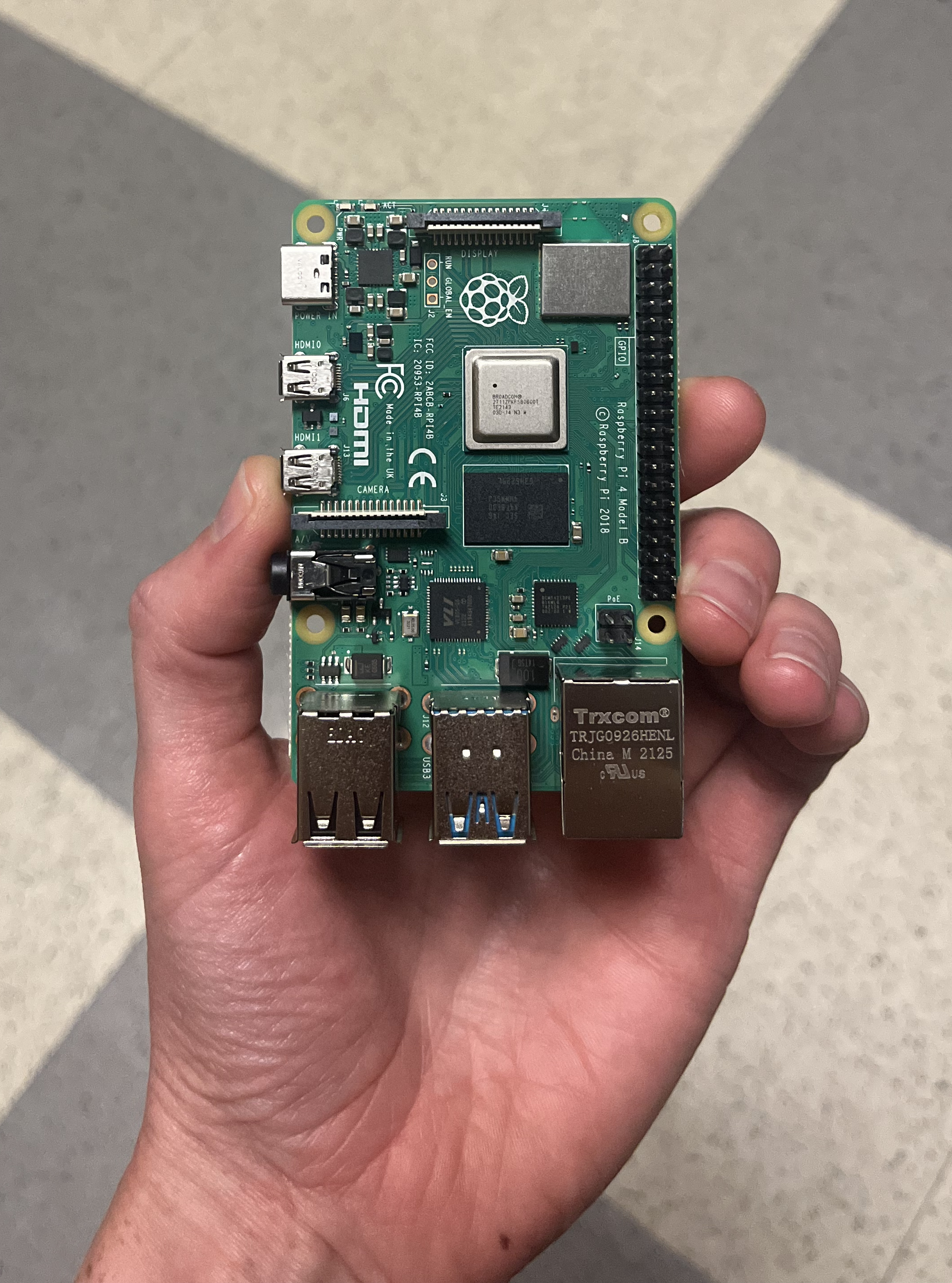
The Raspberry Pi 4.
Using a Raspberry Pi as an automated temperature controller, I have developed a marine heatwave simulator which generates marine heatwaves that match the dynamic nature of real-world heatwave events in the lab. The system allows for full customization, and so researchers can re-create marine heatwaves that have happened in the past or produce entirely new heatwave scenarios based on future projections. The Rasperry Pi and associated components can all be purchased for ~$100.
The publication for this project can be found in Publications, and the Github repository for this project can be found here.
